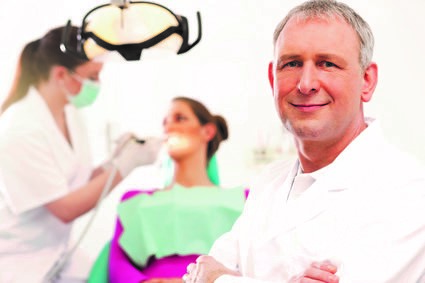
Dental sleep medicine is an area of dental practice that focuses on the use of oral appliance therapy to treat sleep-disordered breathing, including snoring and obstructive sleep apnea (OSA). Dentists work together with sleep physicians to identify the best treatment for each patient.
Dentists and Oral Appliance Therapy
Dentists pioneered the use of oral appliance therapy for the treatment of obstructive sleep apnea and snoring in adults. An oral appliance is a device worn in the mouth only during sleep. It fits like a sports mouth guard or orthodontic retainer. A custom-fit oral sleep appliance is an effective treatment that prevents the airway from collapsing by supporting the jaw in a forward position.
Snoring and Obstructive Sleep Apnea
Snoring is a common warning sign for obstructive sleep apnea. Prior to treatment, you should be diagnosed by a board certified sleep medicine physician. If you have snoring without sleep apnea, your doctor should give you a prescription for an oral sleep appliance. If you have sleep apnea, your doctor will discuss treatment options with you.
The most common treatment for sleep apnea is continuous positive airway pressure (CPAP) therapy. The CPAP machine keeps your airway open by providing forced air through flexible tubing. CPAP therapy requires you to wear a mask as you sleep. Although CPAP therapy is effective, some people are unable to adhere to it. Your doctor should consider giving you a prescription for a sleep apnea appliance if you are unable to tolerate CPAP therapy or prefer an alternate treatment. Many people like an oral appliance because it is comfortable, quiet, portable and easy to wear. In some severe cases of sleep apnea, upper airway surgery may be another treatment option.
Qualified Dentists and Patient Care
Oral appliance therapy should be provided by a qualified dentist who has technical skill and knowledge in dental sleep medicine. Training in how to provide oral appliance therapy is uncommon in dental schools. So not all dentists have the training or experience to provide optimal care for adults with snoring or sleep apnea. Ask your dentist if he or she has any of these qualifications:
Your Health and Quality of Life
The quality of your sleep has a dramatic impact on your health, well-being and overall quality of life. Snoring and obstructive sleep apnea disrupt your sleep and increase your risk of severe health problems. Remember that snoring is a warning sign that should never be ignored. Across the country, many dentists are prepared to provide oral appliance therapy to treat snoring and obstructive sleep apnea. Talk to your doctor and dentist about your treatment options.
References
Ramar K, Dort LC, Katz SG, Lettieri CJ, Harrod CG, Thomas SM, Chervin RD. Clinical practice guideline for the treatment of obstructive sleep apnea and snoring with oral appliance therapy: an update for 2015. Journal of Dental Sleep Medicine2015;2(3):71–125.
Scherr SC, Dort LC, Almeida FR, Bennett KM, Blumenstock NT, Demko BG, Essick GK, Katz SG, McLornan PM, Phillips KS, Prehn RS, Rogers RR, Schell TG, Sheats RD, Sreshta FP. Definition of an effective oral appliance for the treatment of obstructive sleep apnea and snoring. Journal of Dental Sleep Medicine 2014;1(1):51.
Scherr SC, D L, Almeida FR, Bennett KM, et al., authors. Definition of an effective oral appliance for the treatment of obstructive sleep apnea and snoring: a report of the American Academy of Dental Sleep Medicine. Journal of Dental Sleep Medicine2014;1:39–50.
Rogers RR, Remmers J, Lowe AA, Cistulli PA, Prinsell J, Pantino D, Rogers MB. History of dental sleep medicine. Journal of Dental Sleep Medicine 2014;1(1):67–74.